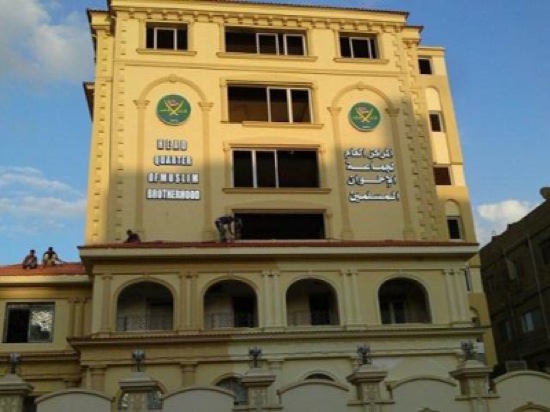The Shiny New Muslim Brotherhood

The Muslim Brothers hosted their grand coming-out party on Saturday night. Officially, the occasion marked the opening of their new headquarters, a seven-story monstrosity that looks like an egg-cream ziggurat on a breezy plateau above Islamic Cairo. Unofficially, the event was a declaration that the Brothers have arrived and will be kingmakers during Egypt’s season of political change.
“We’re not banned anymore,” exulted Mohsen Radi, who served a turn in parliament as a representative of a Delta town called Banha. “By the grace of freedom, by the grace of the revolution, we have regained our place.”
As symbols go, the building and its inaugural could not have been more potent. For decades, the Brotherhood’s Supreme Guide operated out of a stuffy, dark, low-ceilinged apartment on the isle of Manial, in Cairo’s center. A team of state security men loitered out front. Entering visitors had to clamber over the pile of shoes in the hallway, between the elevator and the door. Senior officials would conduct interviews in the corner of the same room where the rest of the leadership was deliberating.
It was, to say the least, a no-frills operation, highlighting the Brotherhood’s ambiguous status as a legally prohibited but semi-tolerated organization.
Between 2005 and 2009, when the Brothers held 88 parliamentary seats, the organization opened a slightly more spacious parliamentary office nearby. State security forbade them from organizing any large public events, and even their annual Ramadan iftaar was cancelled. During functions there, the power often mysteriously cut out, with a frequency that the Brotherhood accepted as one of the more petty manifestations of state harassment.
Now, however, the Brotherhood is freely exercising its organizational muscle. Since Mubarak was run out of office, the Muslim Brotherhood has opened offices in every province. It is launching its own satellite television network. It has entered coalition talks with other groups, and has founded its own political party, called Freedom and Justice, which has a Christian vice president. At first, in an effort to comfort worried Christians and secularists, the Brotherhood said it would contest only 30 percent of the seats in parliament, and wouldn’t run a presidential candidate. Last week, it raised the ante, now saying it will compete for half the parliamentary districts.
With the opening of the new official headquarters in Moqattam, the transformation is complete. Bright lights illuminate the party logo in English and Arabic – a pair of green crossed swords.
About a hundred movement activists prayed outside before the official opening on Saturday night (the building’s been in use for weeks already). They chanted the Brotherhood motto in unison:
God is great.
The Prophet is our teacher.
The Koran is our constitution.
Jihad is our way.
Martyrdom is our goal.
Then they stormed into the building and emptied trays of fruit juice.
In a sign of the Brotherhood’s political heft, a parade of notables came to pay respects, including presidential front-runner and former Arab League chief Amr Moussa and a coterie of other secular politicians and judges.
In a rear lot behind the headquarters, more than a thousand supporters assembled in a dirt lot covered with carpets for the occasion. A band sang paeans to freedom, brotherhood, and the Brotherhood.
Khairat Shater, a millionaire and number-two official in the Brotherhood credited with being one of its most powerful fixers, grinned just beside the stage.
“Where do you think state security is now?” I asked. At the last Brotherhood function I attended, an iftaar in the parliamentary offices in August, the number of plainclothes intelligence officers hovering around the event equaled that of the Brotherhood officials inside.
“They haven’t gone home,” he said. “They’re around here somewhere.”
If one were keeping score, however, the Brotherhood would look to be ahead.

